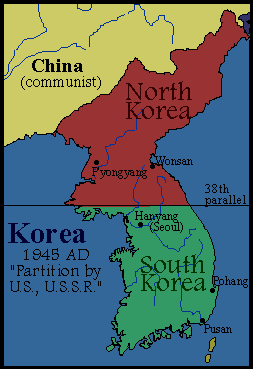Wednesday, January 20, 2010
By Kim Ji-hyun
 Defense Minister Kim Tae-young yesterday said Seoul would have to conduct "preemptive" strikes if it detects signs of possible nuclear aggression from North Korea.
Defense Minister Kim Tae-young yesterday said Seoul would have to conduct "preemptive" strikes if it detects signs of possible nuclear aggression from North Korea.
"We will need to carry out preemptive strikes immediately as soon as we see definite signs of a nuclear attack from North Korea because there would be too much damage if we tried to first block the attack and then respond," Kim said at a forum on military reforms and inter-Korean relations.
The defense minister's remarks come as relations between the two Koreas appeared to be strained once again in the aftermath of a furious statement from the North, denouncing Seoul's reported contingency plans for dealing with "emergency situations" in North Korea.
Pyongyang claims that the plans were aimed at toppling its regime.
Touching on the issue of the plans for transferring wartime operational control to South Korea by 2012, Kim appeared pessimistic about the possibility of readjusting the date to a later time as the conservatives want.
"It is a political promise signed and sealed between two nations. We can not resolve this domestically," the minister said.
But Kim also conceded that the Lee Myung-bak administration was considering this a "tricky" issue.
"The president and the military are pondering (the transfer issue,)" Kim said, adding that the military is preparing for the 2012 transfer.
Any readjustment, he said, would be based on "political judgment from the United States and South Korea."
Critics here believe that transferring wartime operational control to Seoul over the next two years would put the South in a vulnerable position, security-wise.
Right-wing politicians and former military officers have been on a long campaign to defer the transfer to a later date, but the Lee administration has said a readjustment would be difficult.
Washington has on several occasions echoed Seoul's sentiments on this issue.
After the transfer, the South Korean military would be in the leading role for defending its country.
The decision to give Seoul sole operational command by 2012 was made under former President Roh Moo-hyun.
The defense minister yesterday stressed that transferring wartime operational control should not be considered as a prelude to a withdrawal of U.S. troops.
There are some 28,500 U.S. military personnel here. The minister said they would be here even after the transfer and after the camps are relocated to further south of the country.
On North Korea's latest policies towards Seoul, the minister said that he saw Pyongyang to be alternating between hawkish and soft-line methods ahead of a possible resumption of multilateral denuclearization talks.
He supported the nation's current two-track approach aimed at pressuring the North with sanctions, while at the same time keeping the door of dialogue open.
The North in December last year appeared ready to come out for another round of the stalled six-nation talks aimed at ending its nuclear weapons programs.
It was considerably softer to the United States and South Korea in its New Year's address.
But earlier this month it has been putting down conditions such as lifting the United Nations sanctions in order to return to the discussions. Once the dialogue restarts, the North claims utmost priority must be put on signing a peace treaty to replace the current Armistice Agreement.
The two Koreas are currently still technically at war since the 1950-53 Korean War ended in a truce.





No comments:
Post a Comment